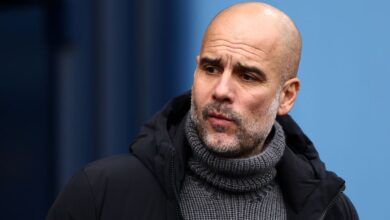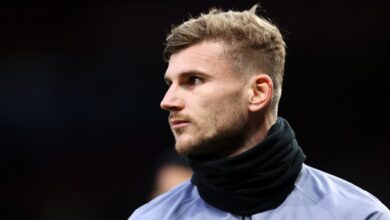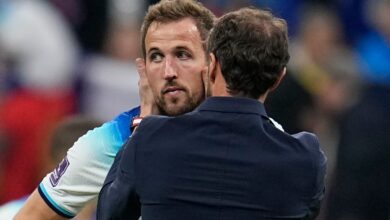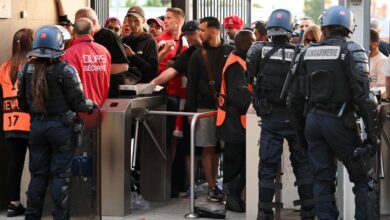Erling Haaland’s early impact at Manchester City already looks ominous for the Premier League
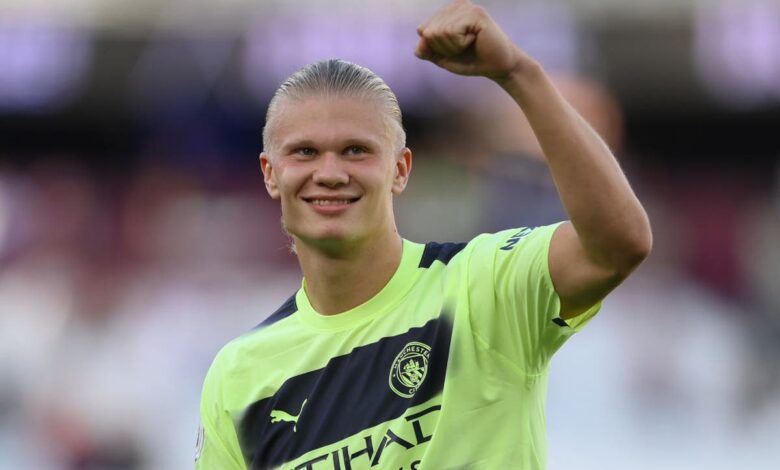
While Erling Haaland was swearing on live television, and Pep Guardiola was getting a little passive aggressive, David Moyes was becoming defensive.
The West Ham manager had been speaking about how his side had been preparing for the Norwegian’s runs all week. They had watched his game against Liverpool, and tried to apply the lessons from previous games against Manchester City.
It didn’t matter, though. They could do little about it.
Moyes was a little unwilling to go all in on all the gushing praise for Haaland, though.
He first of all said that his team should have cut out the Kevin De Bruyne pass that led to the new signing’s sublime second goal. He then refused to admit that the main difference was Haaland.
Moyes spoke at length about how City’s biggest change was actually how high the wing-backs – Joao Cancelo and Kyle Walker – played, which rendered much of West Ham’s pre-game preparation irrelevant.
As Guardiola might say in his own more serene moments, though, that’s all just part of the whole. City were clearly able to play that way – or willing to – because Haaland allows a different shape to the team. Rather than the team being smoothly bordered in terms of the formation and how it moves – a flow of passes – the Norwegian’s runs allow jagged angles, that can stretch opposition sides in an instant. This is why the wing-backs pushing up so high, to also create more space for De Bruyne in the centre, is so influential.
There’s a wider point to that, too.
It means that, for a team that have dominated the Premier League with four of the last five titles, they are now a new proposition. The manner of Haaland’s second goal, which actually shared some characteristics with the move that led to the penalty, emphasised that team’s are going to have to work them out all over again.
That might be ominous. The first half of the season might well be Haaland repeatedly exposing defences that are not used to handling him.
Then, even worse, once they have the 17 games of evidence to pore over, the World Cup will happen to allow the Norwegian five weeks of rest and recuperation. He may well return for Christmas as an even different prospect, fully used to the league, and far fresher than most of the competition.
There are some caveats here, of course. It’s only one game, and that one game was against a West Ham side where there have been murmurs of a squad getting fatigued with the manager’s approach. The lack of energy in the display was notable, although the hot weather probably influenced that, too.
The second goal still feels like a scene we’re going to see again and again this season, scrambling unprepared defences.
If so, it would be a complete twist on the discussion last week that it may take Haaland time to adapt to the league. Guardiola couldn’t help mentioning that when asked about the forward’s performance. This was where he got passive aggressive.
“One week ago he could not adapt in the Premier League. Now he’s alongside the best in, Titi Henry, Alan Shearer and Cristiano Ronaldo.”
Guardiola then declared the “debate” to be “over” because Haaland was simply “born to score goals”.
It’s difficult to disagree. It again came across in that attitude after the match, where the forward declared it was “sh**” that he hadn’t got a hat-trick.
Guardiola at least chuckled at this.
“I don’t know him much because we are three weeks or one month together, so we need time to see how he can react in situations.
Guardiola believed that Haaland’s display had silenced any early doubters

